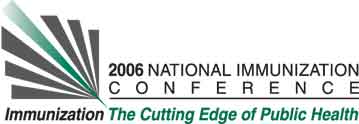Megan C. Lindley, NIP/ISD/HSREB, Centers for Disease Control and Prevention, 1600 Clifton Rd, NE, MS-E52, Atlanta, GA, USA, Susan E. Manning, NIP/ESD/OD, Centers for Disease Control, 1600 Clifton Road, MS E61, Atlanta, GA, USA, Daniel B. Fishbein, National Immunization Program, Centers for Disease Control and Prevention, 1600 Clifton Rd, NE, MS E-52, Atlanta, GA, USA, John Moran, AVPDB/ESD/NIP, Centers for Disease Control and Prevention, National Immunization Program, 1600 Clifton Road, MS E-61, Atlanta, USA, and Robin Womeodu, The University of Tennessee Health Science Center, Memphis, TN, USA.
Learning Objectives for this Presentation:
By the end of the presentation participants will be able to describe the purpose and key aspects of an evidence-based format for ACIP recommendations
Background:
Evidence-based (EB) medicine is the conscientious, explicit and judicious use of current best evidence in making decisions about the use of health interventions. When using EB methods, the link between available evidence and the process by which recommendations are reached should be transparent. Recently there has been an increasing emphasis on using EB methods to guide development of clinical and public health recommendations. Some professional organizations do not endorse the Advisory Committee on Immunization Practices' (ACIP) recommendations because they are not in EB format. In February 2005, ACIP voted to pilot an EB approach for vaccine recommendations to determine the feasibility of using this format. The approach was piloted on herpes zoster and rabies vaccine recommendations.
Setting:
N/A
Population:
N/A
Project Description:
The ACIP formed an Evidence-Based Working Group (EBWG) in October 2003. The EBWG developed a proposal to systematically summarize evidence for four key aspects of proposed immunization recommendations: 1) efficacy/effectiveness, 2) safety, 3) feasibility of implementation and 4) economics, examining both individual and public health outcomes. EBWG members reviewed and modified EB methods used by other organizations for use in vaccine recommendations.
Results/Lessons Learned:
The EBWG has systematically evaluated and summarized the efficacy/effectiveness of both vaccines. There is strong evidence that zoster vaccine is effective and safe; economic and feasibility data are pending. For rabies vaccine, some ACIP recommendations are not supported by studies in humans and will be based on inferences from animal studies and expert opinion. Final pilot results will be presented at the June 2006 ACIP meeting. An EB format will increase the transparency of ACIP recommendations for stakeholders, including professional organizations, thereby increasing acceptance and endorsement of recommendations and – ultimately – their use by clinical care providers.
See more of Posters
See more of The 40th National Immunization Conference (NIC)

